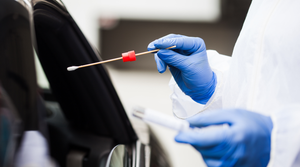Vivasure Opens up about Securing a Top Spot in Vessel Closure Market
Recent approvals in the TAVR and TMVR markets are providing significant opportunities for companies like Vivasure Medical. The Galway, Ireland-based company recently said the first large-bore venous patient was treated with the PerQseal Elite vascular closure system in a clinical trial.
April 18, 2024

At a Glance
- Vivasure Medical has introduced the PerQseal Elite vascular closure system to address large-bore venous access procedures.
- Vivasure is actively conducting clinical trials for both arterial and venous versions of the PerQseal system.
- Advancements in valve replacement and repair are creating significant opportunities for percutaneous vessel closure devices.
The explosion of innovation in valve replacement and repair markets is opening a huge opportunity for percutaneous vessel closure devices.
Edward Lifesciences’s FDA nod for the Evoque Transcatheter Tricuspid Valve Replacement market and Abbott receiving a tricuspid indication for the MitraClip are making this segment of the cardiovascular market even hotter.
“There is a need for a closure system for these devices as they come to market,” Andrew Glass, CEO of Vivasure, told MD+DI.
Glass spoke with MD+DI about recent milestones and where the firm fits in the market with the PerQseal system.
“Vivasure Medical is an arterial closure company,” Glass said. “The primary market we go after commercially today is transcatheter aortic valve replacement (TAVR) or endovascular aortic graphs (EVAR).”
Earlier this week, the company announced it met a milestone by treating the first large-bore venous patient with the PerQseal Elite vascular closure system, which is a sutureless and fully bioresorbable large-bore vessel closure device. PerQseal Elite is the company’s next-generation product.
“We made some modifications to this version, not only to deal with the arterial side but also to deal with the large hole closure challenge of all of these new up-and-coming Venus access procedures – particularly transcatheter mitral valve replacements, transcatheter tricuspid valve replacement,” Glass said.
The first successful implant was completed by Prof. Nicolas Van Mieghem, MD, PhD, Clinical Director of Interventional Cardiology at the Thoraxcentre, Erasmus Medical Centre in Rotterdam, The Netherlands, as part of the company’s ELITE Venous Clinical Study—a prospective, multi-center, single-arm clinical study evaluating the safety and efficacy of the vascular closure system.
The Elite Venous Clinical Study will enroll up to 97 patients at up to 12 European investigational sites. The company said the study is slated to be completed this year and results will help support CE mark and pre-market approval submissions.
“Current venous closure methods are not indicated for large hole venous access applications like Transcatheter Edge-to-Edge repair (TEER), TMVR, and TTVR. As these procedures become more common, there’s a need for closure options that can effectively address these emerging clinical applications,” said Prof. Nicolas Van Mieghem, principal investigator of the ELITE Study. “I’m looking forward to further study the PerQseal ELITE technology for venous closure and assessing its performance for patients.”
The PerQseal Elite vascular closure system is placed from inside the vein, making deployment simpler and more controlled than conventional closure techniques and returning the vein to its natural state without leaving materials like collagen, metal implants, or sutures behind, as commonly seen in other closure technologies.
Glass noted that arterial trials for the device kicked off in 3Q23.
“That trial is ongoing and we would expect to present data later this year on the arterial version.
The company is hoping to obtain CE mark early next year. Glass shared the company's steps in obtaining FDA clearance.
“We have our PerQSeal family of devices that are going through an IDE trial,” Glass said. “So we’re getting quite close to getting done with that IDE trial and we would submit the data hopefully this year. That would lead to an approval process, hopefully, at the end of this year or early next year.”
About the Author(s)
You May Also Like




